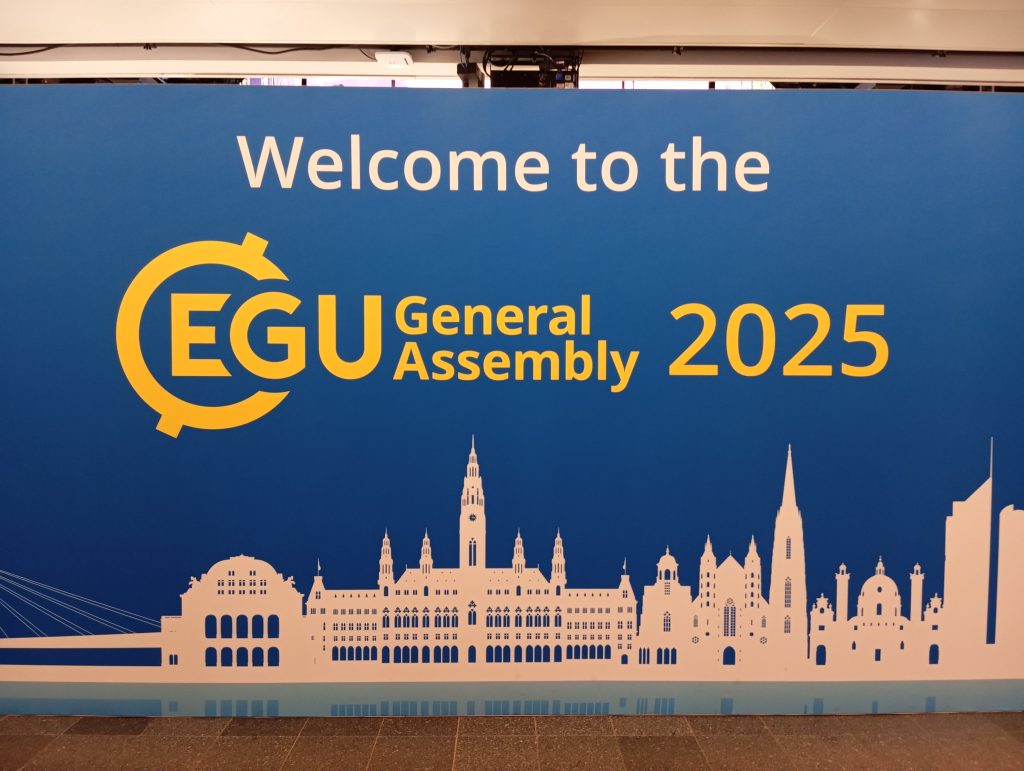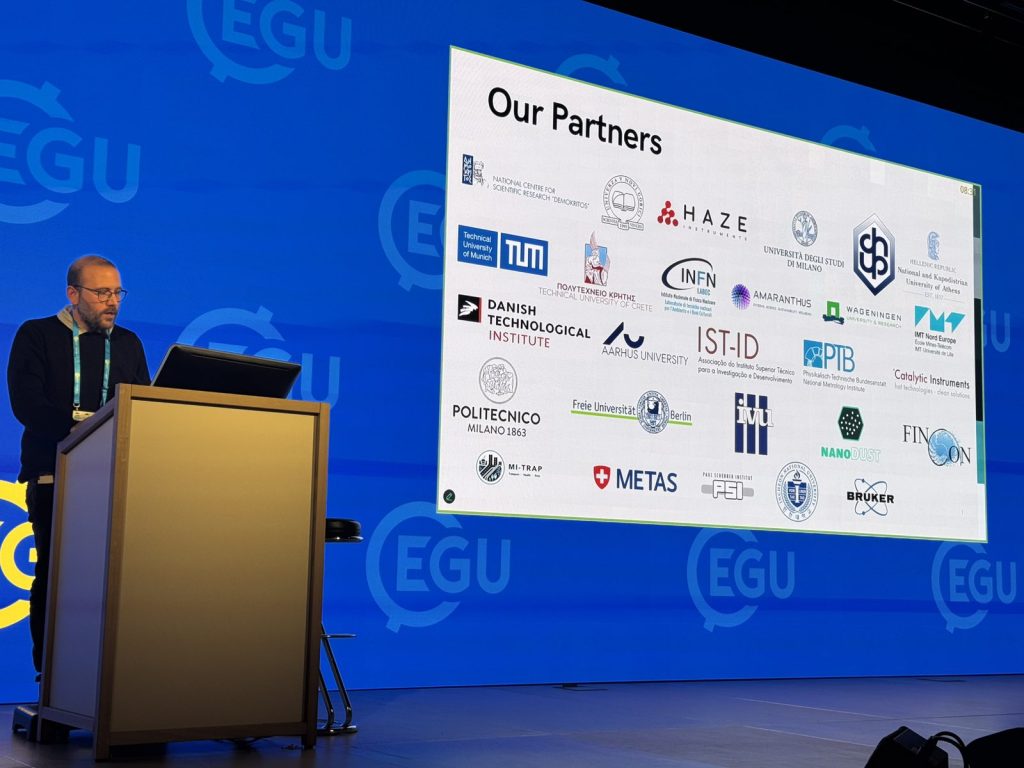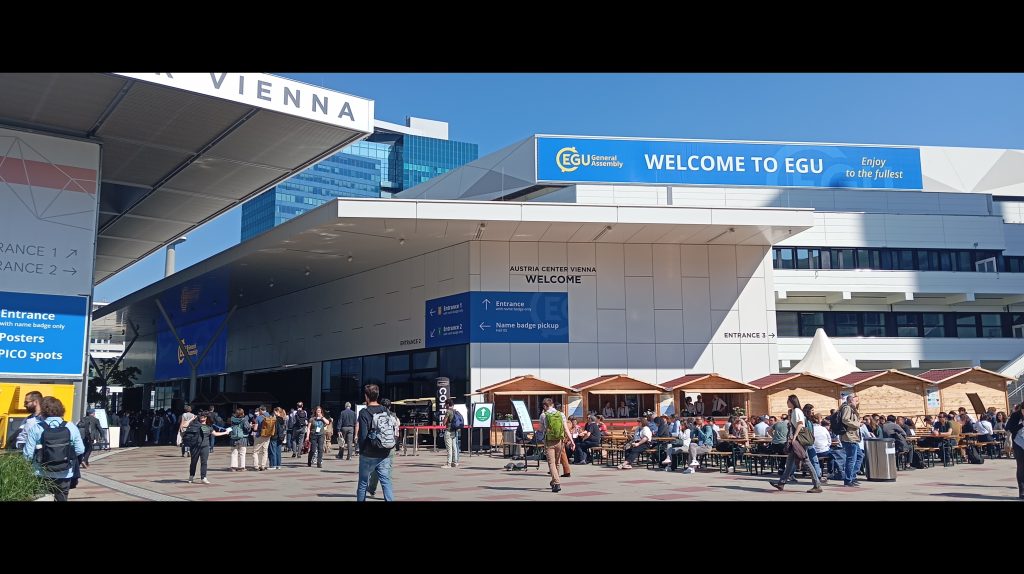05 May MI-TRAP Presentation at the at the EGU General Assembly 2025
Vienna, Austria | 29 April 2025 | Austria Center Vienna

From 27 April to 3 May 2025, Vienna hosted the European Geosciences Union (EGU) General Assembly, the largest European conference in Earth, Planetary, and Space Sciences. The event featured over 1,000 scientific sessions and welcomed more than 20,000 participants from around the world.
MI-TRAP was presented in the scientific session AS3.30: Transport and air pollution, from real-world emissions to their impacts, co-convened by Prof. Konstantinos Eleftheriadis, MI-TRAP Project Coordinator and Director of Research (Environmental Radioactivity & Aerosol Technology for Atmospheric & climate impacts Laboratory) at NCSR Demokritos. The session provided an ideal platform to share the project’s latest findings with the broader scientific community. Prof. Eleftheriadis attended with fellow researchers Maria Gini and Manos Manousakas, contributing to the session’s strong focus on cutting-edge air quality science and collaborative policy development.
Dr Giorgos Chatzinakos (AMRN) delivered a presentation titled “Advancing Collaborative Solutions to Transport-Related Air Pollution: Insights from the MI-TRAP Project.” The talk highlighted MI-TRAP’s participatory approach to air quality governance, key outcomes from the 1st International Living Lab (ILL) held in Berlin last February, and a forward-looking perspective on the next phases of the project.
Special attention was given to the identification of critical knowledge gaps, particularly regarding emerging pollutants such as ultrafine particles, the challenges of translating scientific evidence into effective policy, and the pressing need to improve public communication and awareness. The discussion also underlined future challenges, including the growing significance of non-exhaust emissions (e.g., tyre and brake wear) and the risk of uneven progress across European regions.
Looking ahead, the presentation outlined MI-TRAP’s next steps: the validation of technological tools in collaboration with city authorities and industry partners during the 2nd ILL workshop, and the development of evidence-based policy support during the 3rd ILL. Complementary activities, such as citizen science campaigns, training sessions, and public dialogues, will build capacity and foster broader community engagement at the local level.





